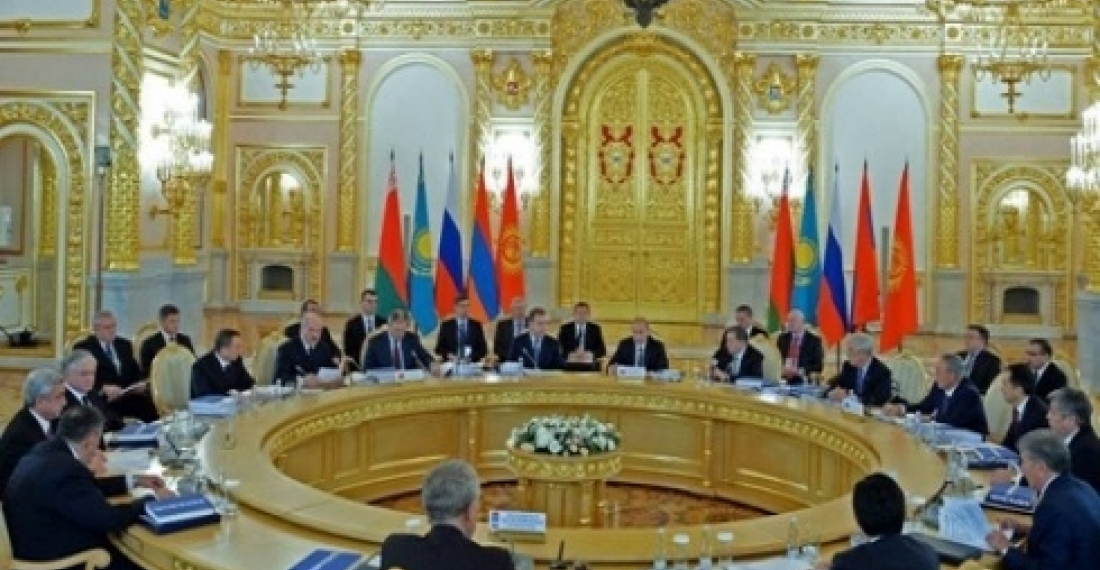Armenia on Friday (2 January 2015) became the 4th member of the Eurasian Economic Union (EEU). The Union officially came into being the day before with three member states: Belarus, Kazakhstan and Russia. The one day difference means that Armenia will not be considered as a founding member of the Union, but the official website of the EEU now lists it as a member state together with the other three. It is expected that Kyrgystan will become the fifth member of the EEU in May.
The Eurasian Economic Union describes itself as "an international organization for regional economic integration. It has international legal personality and is established by the Treaty on the Eurasian Economic Union. The EEU provides for free movement of goods, services, capital and labor, pursues coordinated, harmonized and single policy in the sectors determined by the Treaty and international agreements within the Union."
The web site of the EEU says that the union "is being created to comprehensively upgrade, raise the competitiveness of and cooperation between the national economies, and to promote stable development in order to raise the living standards of the nations of the Member-States." The the gross domestic product (GDP) of the EEU in 2013 was US$2,411.2 billion.
On 29 May 2014, the presidents of Kazakhstan, Belarus and Russia signed the treaty on the Eurasian Economic Union, which came into effect on 1 January 2015. The presidents of Armenia and Kyrgyzstan were also present at the signing ceremony. Russian president Vladimir Putin stated, "Today we have created a powerful, attractive center of economic development, a big regional market that unites more than 170 million people." By October, the treaty had received parliamentary approval from all three states. On 9 October 2014, a treaty enabling Armenia to join the EEU was signed. A similar treaty was signed with Kyrgystan in December.
source: commonspace.eu
photo: The session of the Supreme Eurasian Economic Council held in Moscow on 23 December 2014 put the finishing touches to the establishment of the Eurasian Economic Union and the work of its agencies.







